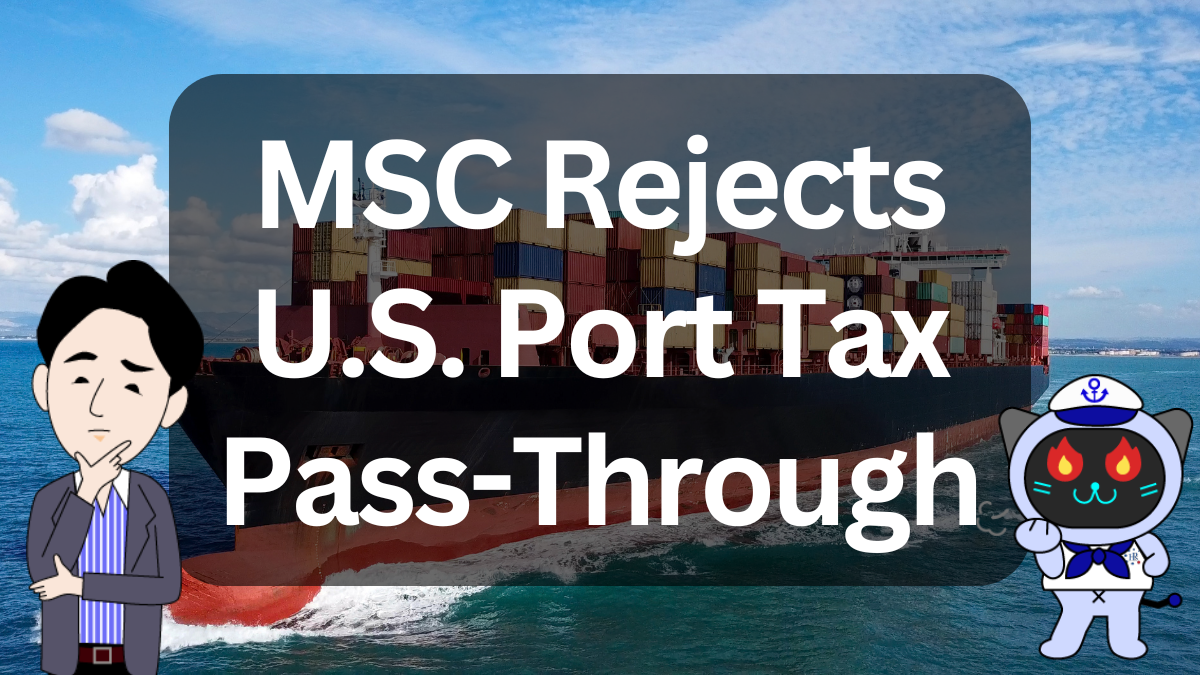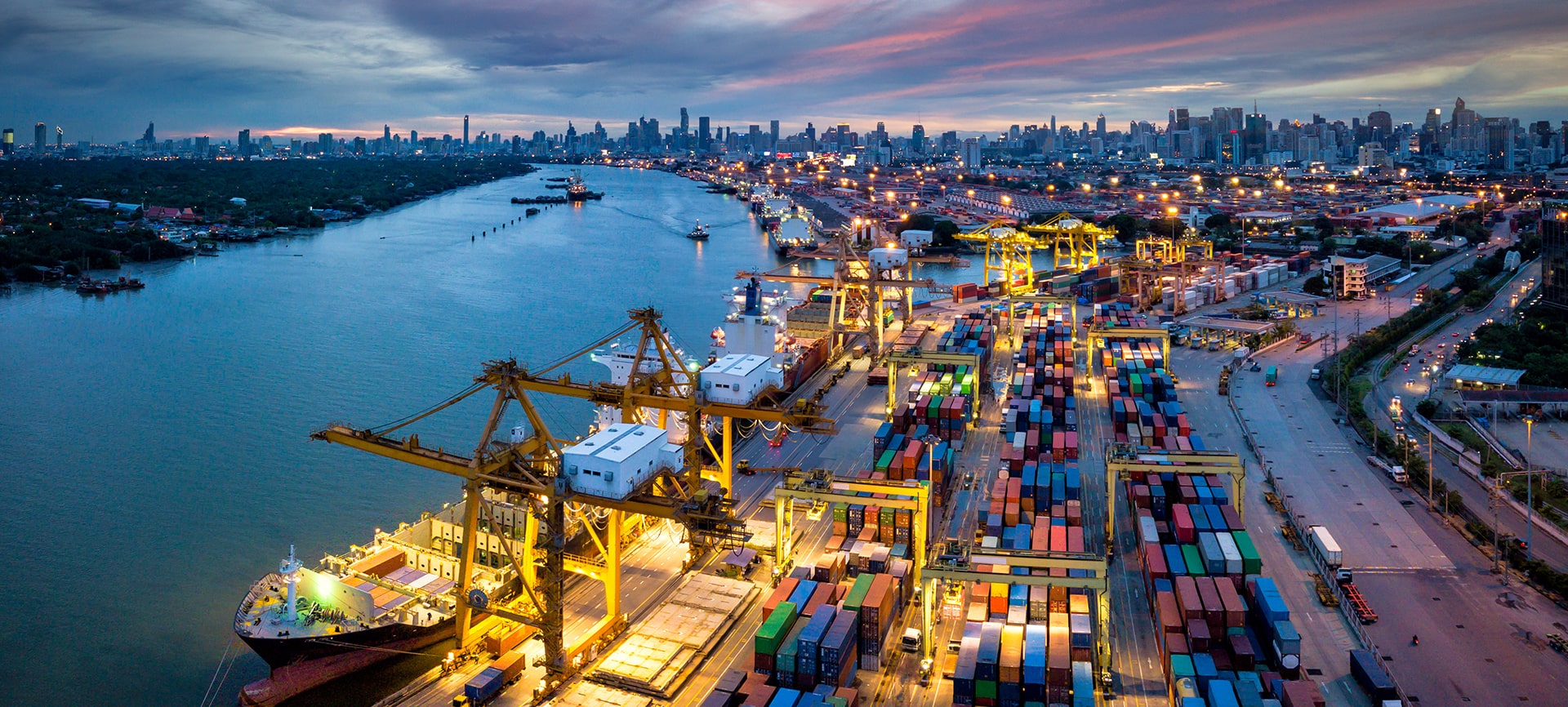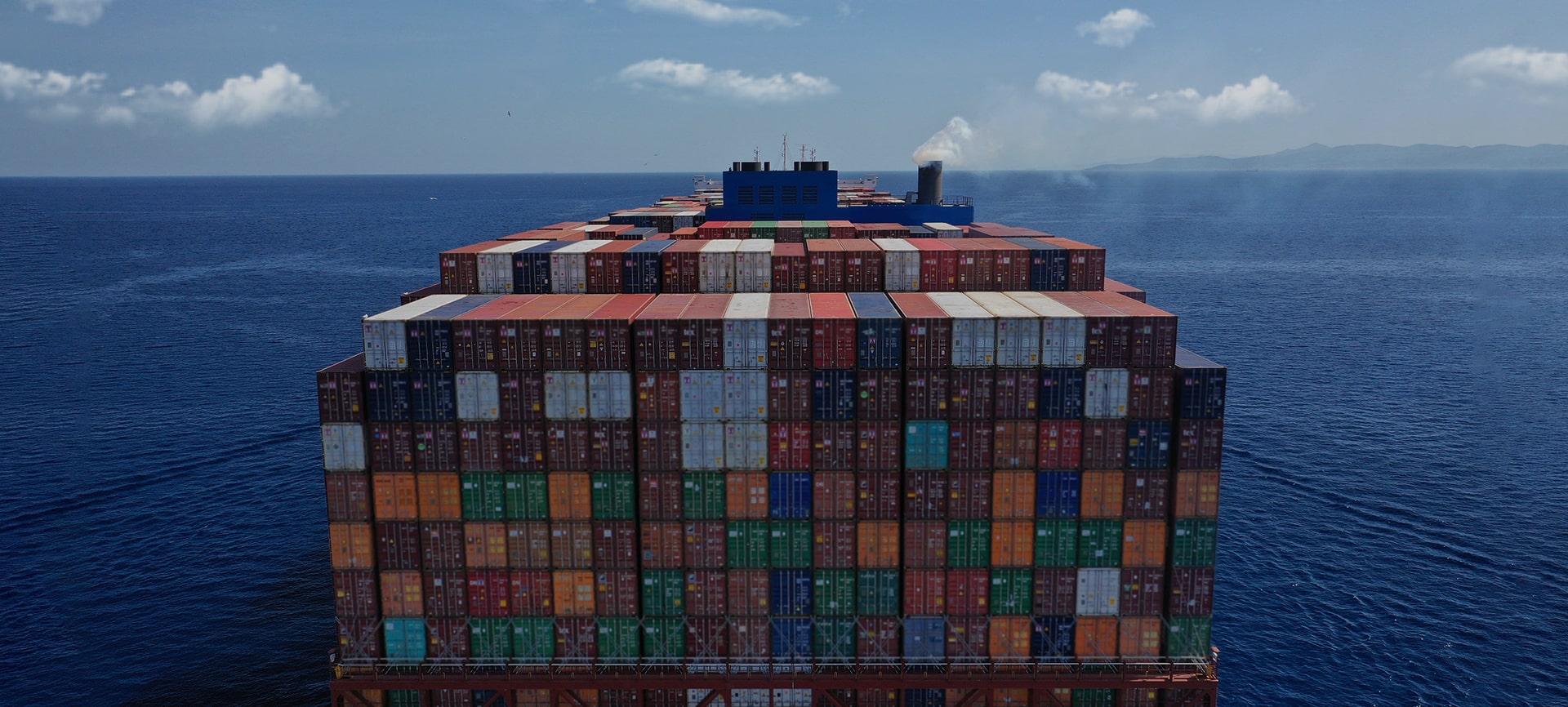Posted on: September 16, 2025 / Last updated: September 16, 2025
MSC Responds to U.S. Port Surcharges on China-Built Ships: No Cost Passed to Customers

CONTENTS
New U.S. Tariff on Chinese-Built Ships
Starting October 14, the U.S. will impose a new surcharge of $300–$600 per container on ships built in China or operated by Chinese entities.
This move could raise costs significantly for importers and exporters.
MSC’s Strategic Response
In response, MSC has reorganized its global fleet to avoid U.S.-bound services with Chinese-built ships.
- “MSC Jeongmin” (9,411 TEU), which had visited the U.S. 154 times over the past 5 years, has been reassigned to the Mediterranean–Northern Europe route.
- “MSC Ivory Coast” (8,496 TEU) has shifted to the West Mediterranean–Red Sea service.
MSC announced it will not pass on these surcharges to its customers.
Other Carriers’ Moves
- CMA CGM has also removed Chinese-built vessels from U.S. services and pledged no surcharge to customers.
- COSCO, although unable to avoid the fees, has also vowed not to charge customers.
Shipbuilding Power Dynamics
Currently, around half of MSC’s fleet is built in South Korea, while about 25% is Chinese-built.
However, MSC has 106 ships (1.9 million TEU) on order from Chinese yards, with none ordered from Korean yards — meaning its reliance on China will rise sharply.
Strategic Balancing Amid U.S.–China Tensions
Short-term: MSC aims to protect customers.
Long-term: Heavy dependence on China’s shipyards may create regulatory risks.
This case symbolizes how geopolitics and shipbuilding dynamics shape global logistics.
Summary
The U.S. plans to impose surcharges on Chinese-built ships. MSC is restructuring its network to shield customers from these fees.
But with more Chinese ships joining its fleet, regulatory risks may grow. This is a key example of how U.S.–China trade friction and shipbuilding strategy impact logistics globally.












